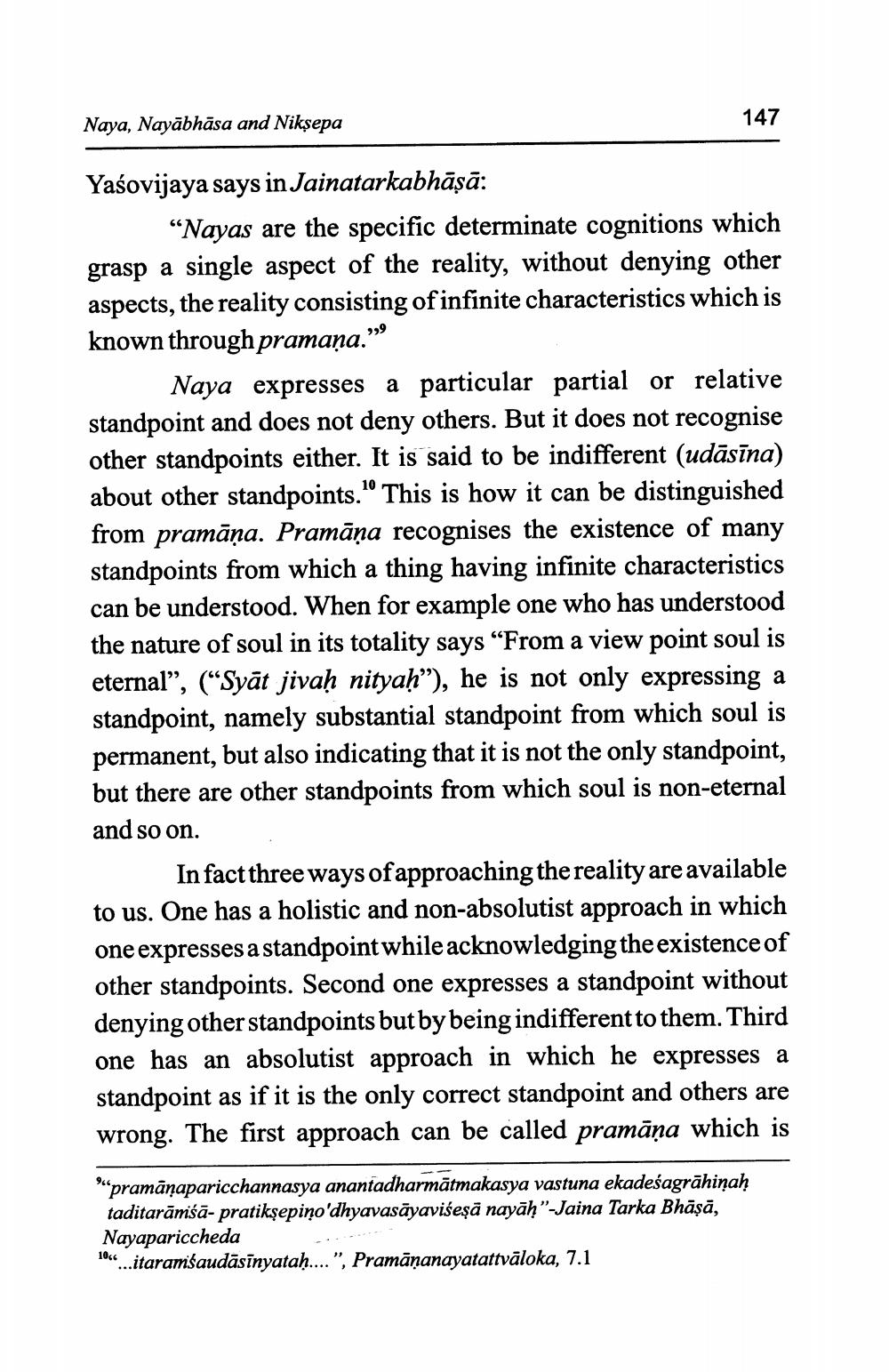________________
Naya, Nayābhāsa and Niksepa
147
Yaśovijaya says in Jainatarkabhāṣā:
“Nayas are the specific determinate cognitions which grasp a single aspect of the reality, without denying other aspects, the reality consisting of infinite characteristics which is known through pramaņa.”
Naya expresses a particular partial or relative standpoint and does not deny others. But it does not recognise other standpoints either. It is said to be indifferent (udāsīna) about other standpoints. This is how it can be distinguished from pramāņa. Pramāņa recognises the existence of many standpoints from which a thing having infinite characteristics can be understood. When for example one who has understood the nature of soul in its totality says “From a view point soul is eternal”, (“Syāt jivaḥ nityaḥ”), he is not only expressing a standpoint, namely substantial standpoint from which soul is permanent, but also indicating that it is not the only standpoint, but there are other standpoints from which soul is non-eternal and so on.
In fact three ways of approaching the reality are available to us. One has a holistic and non-absolutist approach in which one expresses a standpoint while acknowledging the existence of other standpoints. Second one expresses a standpoint without denying other standpoints but by being indifferent to them. Third one has an absolutist approach in which he expresses a standpoint as if it is the only correct standpoint and others are wrong. The first approach can be called pramāņa which is
pramānaparicchannasya anantadharmātmakasya vastuna ekadeśagrāhinah taditarāmiśā- pratikşepiņo'dhyavasāyavićeşā nayāḥ"-Jaina Tarka Bhāṣā, Nayapariccheda 16...itaramsaudāsinyatah....", Pramānanayatattvāloka, 7.1




